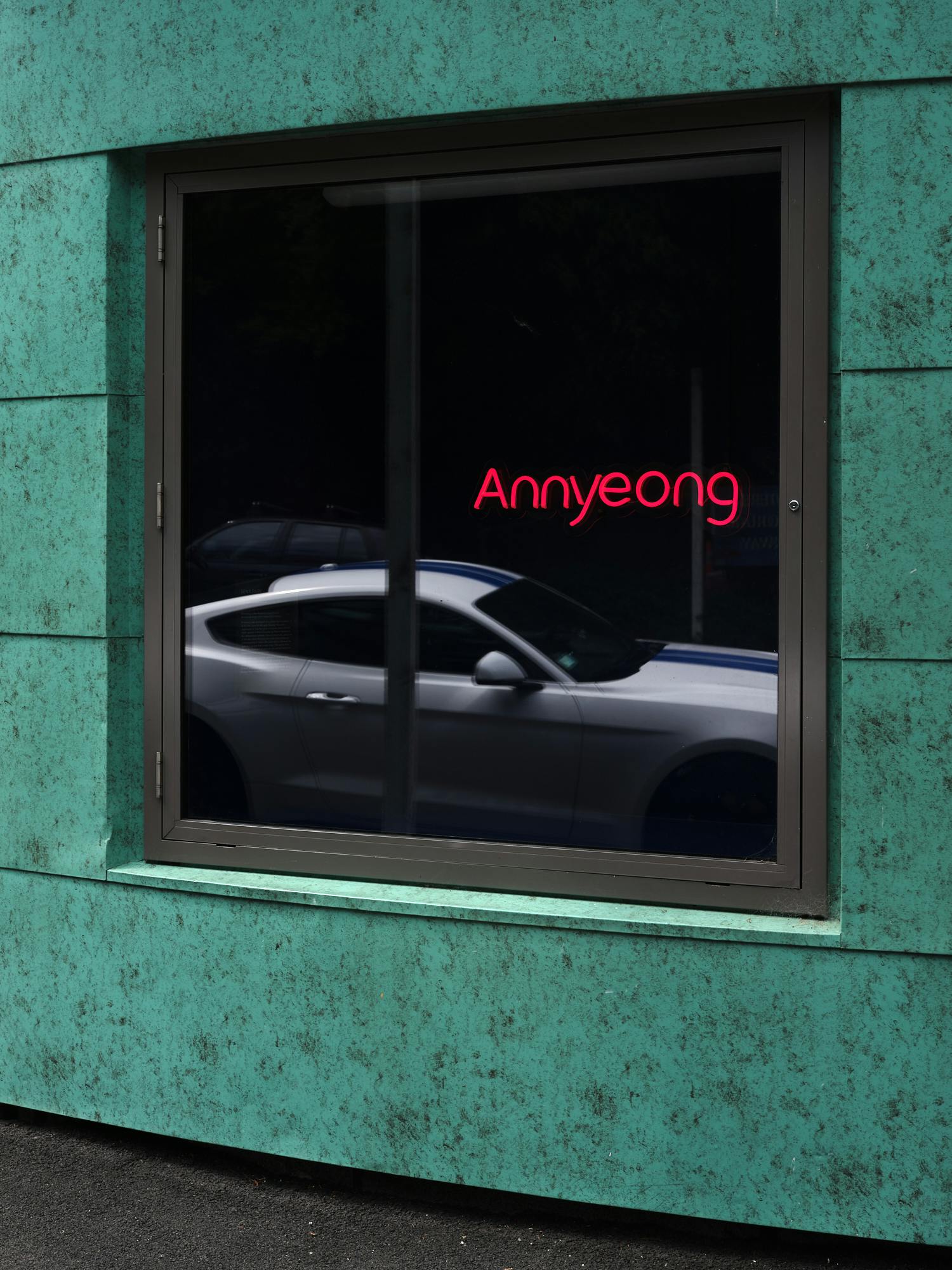
Sena Park, Annyeong (2019/2021). Image by Sam Hartnett
Photo Credit

Sena Park, Annyeong (2019/2021). Image by Sam Hartnett
Photo Credit
Sena Park’s neon sculpture Annyeong (2019/2021) was originally produced as part of the installation ‘Attitude towards encountering nature’ at the Corban Estate Arts Centre in 2019. Park developed her original installation, described as a ‘narrative-work about encountering nature as a contemporary observer’, following her encounter with Mongolia’s wild landscape while on a short residency at the 5th Land Art Mongolia Biennial.
Park’s experience in rural Mongolia contrasted sharply with the urban spaces in which the artist grew up, leading her to reflect on the way urban lifestyles and visual culture shape our understanding of nature. For Annyeong, the artist uses neon to reference the colourful signage that crowds many cities and to think about the treatment of nature as yet another thing to be consumed at our convenience.
Where neon signs typically address us as consumers, Park’s addresses us with a friendly greeting: ‘Annyeong’ is the shortened, casual form of ‘Annyeonghaseyo’ which means ‘Hi’ in Korean. ‘Annyeonghaseyo’ was the greeting Park heard most often during her stay in Mongolia, where fellow artists frequently recognised references to Korean culture in the works she made. Though Park had not intended to refer to her cultural background, these responses encouraged her to consider her dual identity as a Korean New Zealander. As a work featuring a Korean word written in Latin alphabet (and not Korean script), Annyeong reflects this duality and marks a turning point in the artist’s practice.
Sena Park’s neon sculpture Annyeong (2019/2021) was originally produced as part of the installation ‘Attitude towards encountering nature’ at the Corban Estate Arts Centre in 2019. Park developed her original installation, described as a ‘narrative-work about encountering nature as a contemporary observer’, following her encounter with Mongolia’s wild landscape while on a short residency at the 5th Land Art Mongolia Biennial.
Park’s experience in rural Mongolia contrasted sharply with the urban spaces in which the artist grew up, leading her to reflect on the way urban lifestyles and visual culture shape our understanding of nature. For Annyeong, the artist uses neon to reference the colourful signage that crowds many cities and to think about the treatment of nature as yet another thing to be consumed at our convenience.
Where neon signs typically address us as consumers, Park’s addresses us with a friendly greeting: ‘Annyeong’ is the shortened, casual form of ‘Annyeonghaseyo’ which means ‘Hi’ in Korean. ‘Annyeonghaseyo’ was the greeting Park heard most often during her stay in Mongolia, where fellow artists frequently recognised references to Korean culture in the works she made. Though Park had not intended to refer to her cultural background, these responses encouraged her to consider her dual identity as a Korean New Zealander. As a work featuring a Korean word written in Latin alphabet (and not Korean script), Annyeong reflects this duality and marks a turning point in the artist’s practice.